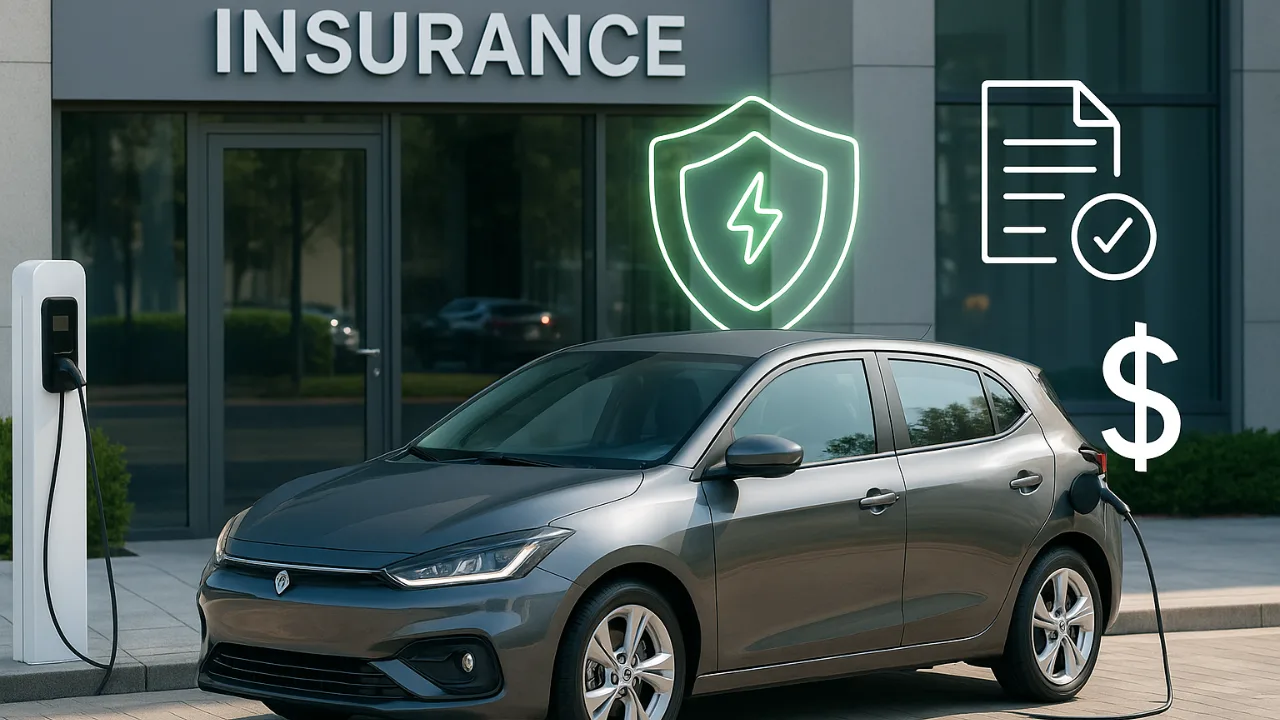Discover electric car insurance costs, factors that affect premiums, and tips to save while protecting your EV with the right coverage.
Introduction
As electric vehicles or EVs grow in popularity across the globe directed attention has been given to one of the most important factors for existing and prospective owners insurance cost. Though EVs enjoy lower maintenance costs, tax breaks and environmental advantages their average insurance costs are higher than gas vehicles.
Why Electric Cars Insurance Is Often Higher
Although electric cars are much less expensive to fuel and maintain over their life cycle, insuring them is a headache for insurance companies. EV insurance tends to be more expensive for a few reasons:
Higher Initial Cost: The cost of electric vehicles especially from Tesla, BMW and Audi, are higher than ICE vehicles. The higher vehicle value also means a bigger potential payout for insurers if a total loss occurs which hikes premiums.
Expensive Repairs and Components: EVs use unique technology including costly lithium ion batteries, regenerative braking and specialized software. These parts can be expensive to replace after an accident or repair particularly if repairs must be done at manufacturer-certified shops.
Limited Repair Facilities: Not all repair shops or body shops are familiar with EV specific repairs. The shortage of trained personnel and certified repair facilities translates to higher labor rates and slower cycle times.
What Affects The Cost Of EV Insurance?
a. Present Value of Battery and Replacement Cost
The single most costly element in an EV is the battery which can set a car back 5,000 to 15,000. Battery damage cost is accounted for in premium calculations by insurance companies.
b. Technology and Safety Features
Safety features such as automatic emergency braking lane keeping assist. Adaptive cruise control make accidents less likely but they add to the complexity and expense of any repairs when something gets damaged.
c. Theft Risk
Due to their popularity and high resale and parts market value some EVs are more likely to be the target for thieves. That can increase the costs of comprehensive insurance.
d. Driving Range and Usage
It may affect how much you pay for incidentals, insurance and roadside assistance based on how many miles you drive your EV yearly. Some EV owners particularly those who use their cars exclusively for short commutes. Those may be eligible for discounts because of lower mileage.
How to Lower Electric Vehicle Insurance Fees
Bundle Policies: Get a discount by combining your auto policy with home or renter’s insurance.
Choose Higher Deductibles: A higher deductible saves you money on your monthly premium. Though you will pay more out of your own pocket if you file a claim.
Shop Around: Get quotes from different insurers. Some companies now specialize in coverage for EV and provide better pricing.
Ask About EV Discounts: Certain insurers offer up to 10 percent green vehicle discounts for electric or hybrid vehicles.
Anti Theft Devices: Added security for your vehicle can bring down premiums.
Is EV Insurance Worth the Money?
Even if it costs more on an annual basis EV insurance can provide peace of mind against expensive repairs and potential battery related claims. And the savings in the long term on fuel upkeep. Federal and state EV tax credits can make higher insurance costs worthwhile over the years.
Furthermore as the EV market matures and there are more models on the streets insurance rates will be stabilized. Companies will have to draw up more competitive EV specific plans and broader repair networks should help bring down repair costs.
- Audi GT50 Concept: A Loud Reminder of Why Car Enthusiasts Fell in Love With Audi
- Nearly 30% of UK Drivers Believe Car Tax Should Be Based on Mileage — Survey
- Why Planes and Boats Escaped the Luxury Tax But Cars Didn’t
- Australia’s Headlight Confusion: Authorities Warn Drivers After Viral $250 Headlight Rule Goes Wild Online
- 2025 Hyundai Venue Facelift Launched in India – Full Details, Variants, and Price
Final Thoughts
Electric cars are here to stay and while insurance costs will likely be higher today these are manageable with the right tactics. By learning how EV insurance premiums are determined and what you can do to save. You can get the most out of electric driving without emptying your wallet. Whether you are behind the wheel of a Tesla or a Nissan Leaf it pays to do your due diligence shop around. For rates think about how much coverage you need and factor in any available ev incentives to get the best bang for your buck.
